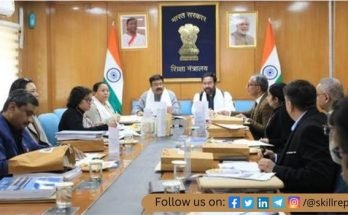The first online gaming license (paywall) awarded in India was issued by the state of Sikkim, for online lottery, back in November 2014. Since then, there have been several Indian court rulings pertaining to the status of poker. The most important of these was a ruling by the Indian Supreme Court in August of 2015.
The ruling was expected to provide a clear authority for the legality of online Rummy, and by association, online poker. Instead, the court avoided the issue (paywall), saying that the original case did not actually refer to playing Rummy for money.
Despite the lack of precision regarding online poker, the arguments heard by the court convinced the Indian poker industry that in any future case, the Court would rule that online poker was a “Game of Skill”. And it would therefore exempt from the legal definition of gambling.
The case was sufficient to give Nagaland the confidence that its Prohibition of Gambling and Promotion and Regulation of Online Games of Skill Act, 2016 would stand up to any challenge under federal law.
The Nagaland license allows operators to offer online poker in most of India
A Nagaland license does not restrict operators to the local population of 2.3 million. The law allows licensed operators to provide their services to all “states or union territories where games of skill are permitted.”
The jurisdictions from which operators cannot accept players must have a specific law against allowing games of skill, since the Supreme Court position means that no federal gambling law would apply. The current Indian gambling law dates back to 1867. A state commission is currently reviewing how it can be amended to bring it up to date.
Nagaland operators can not only provide services throughout India, but also market them in any territories where games of skill have been exempted from the definition of gambling.
The extra-territorial nature of the license should make it attractive to some foreign operators. The decision is not straightforward, because operators such as PokerStars are active in the Indian market on the basis that its business is legal under the current law and definitions.
Gauging India’s potential impact on online poker
In Amaya’s Q3 conference call last month, CEO Rafi Ashkenazi told investors that the company was looking for a local partner to help it expand its business in the region. He said:
“I don’t have a specific update at this time in terms of timing, but we believe that we would be able to operate in India hopefully soon, and maybe as soon as Q1 or Q2 next year.”
He quoted a wide range of possible revenue forecasts, suggesting that in time India could produce between $80 million and $150 million per year.
That would account for perhaps 10 percent of all Amaya revenues. Full year Amaya earnings for 2016 were estimated to be between $1,137 million to $1,157 million. Adda52 bills itself as the most popular poker room in India. It signed a deal with the World Poker Tour (WPT) in April this year as part of its expanded marketing strategy.
Founder and CEO, Anuj Gupta said at the time:
“There is a poker boom and the Indian poker community is looking for a better tournament experience. With this tie-up, we want the poker community to be exposed to international standards of poker with better structures, well-defined tournaments, and the knowledge the WPT brings to the table.”
India, an economic growth center
India is a nation of 1.3 billion people. And although on average its population is extremely poor with annual GDP/capita of just $1,820, the country’s economy is growing extremely strongly. Since 1951, annual GDP growth has averaged 6.08 percent and continues to converge with more developed countries. In Q3 2016 GDP growth came in at an annualized rate of 7.3 percent.
There is a wealthy, highly educated middle class, larger than the population of most OECD countries–a valuable target market for now, and for the future. Nagaland’s new laws have not quite opened up the market for online poker, but they are leading the way in what will be a very important market.
Note: News shared for public awareness with reference from the information provided at online news portals.



